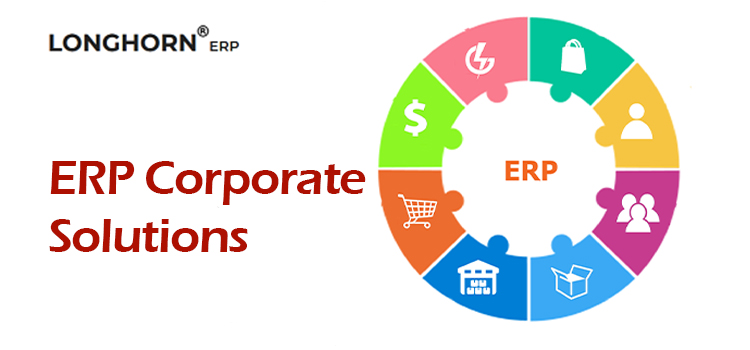Enterprise Resource Planning (ERP) is a comprehensive software solution designed to streamline and integrate various business processes across an organization. It serves as a centralized platform that enables efficient management of resources, data, and tasks, promoting collaboration and enhancing overall productivity. Despite its advantages, ERP systems also come with their share of challenges.
Advantages of ERP:
Improved Efficiency: ERP systems automate repetitive tasks, reducing the need for manual data entry and minimizing errors. This leads to increased operational efficiency.
Data Integration: ERP integrates data from different departments, providing a unified and real-time view of business processes. This facilitates better decision-making based on accurate and up-to-date information.
Enhanced Collaboration: By fostering communication and collaboration among various departments, ERP Corporate Solution systems break down silos and create a more cohesive work environment.
Customer Service: Access to a centralized customer database allows for better customer relationship management, resulting in improved customer service and satisfaction.
Cost Savings: Although the initial investment can be substantial, ERP systems can lead to long-term cost savings by optimizing processes, reducing errors, and improving resource allocation.
Disadvantages of ERP:
High Implementation Costs: One of the major drawbacks of ERP is the high upfront costs associated with implementation, including software licensing, hardware, and training expenses.
Complex Implementation: Implementing an ERP system is a complex process that often requires significant time and resources. Customization to fit specific business needs can further complicate the process.
Resistance to Change: Employees may resist the changes brought about by ERP implementation, leading to a temporary decline in productivity as they adapt to new workflows and technologies.
Maintenance Challenges: Ongoing maintenance and updates can be challenging, requiring dedicated IT resources to address issues, ensure system security, and keep the software up-to-date.
Integration Issues: Incompatibility with existing systems or difficulties in integrating with third-party applications can pose challenges during ERP implementation.
Conclusion:
While ERP systems offer numerous benefits in terms of efficiency, data integration, and collaboration, organizations must carefully weigh these advantages against the potential drawbacks such as high implementation costs, complexity, and resistance to change. A well-planned and executed ERP implementation strategy, coupled with effective change management, can help mitigate these challenges and unlock the full potential of an ERP system for organizational success.


One thought on “What is an ERP explain its advantages and disadvantages?”
Comments are closed.